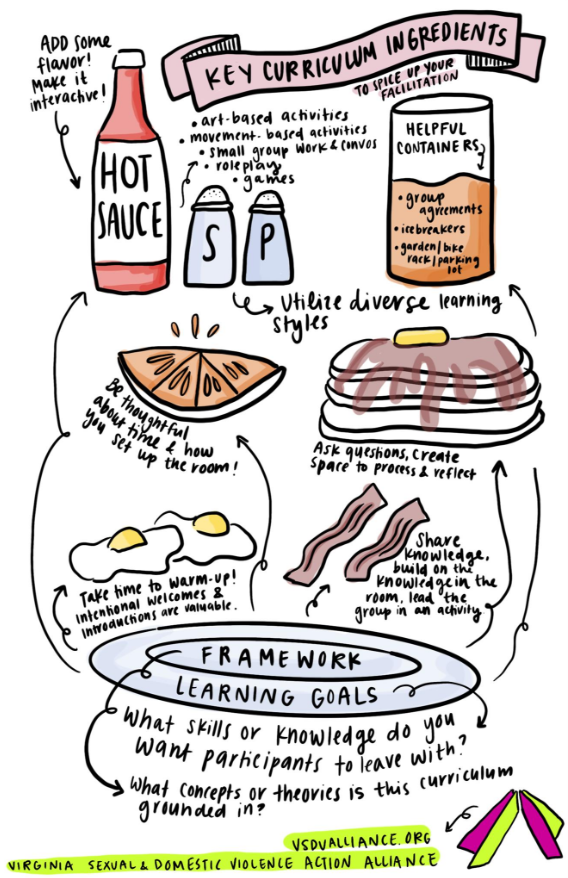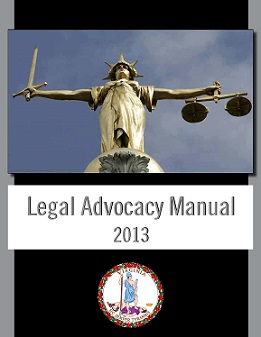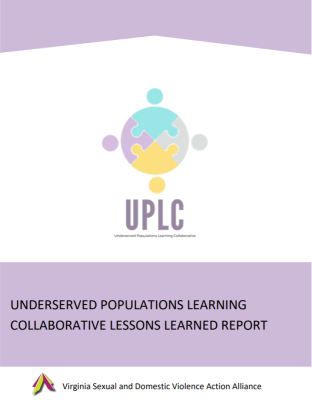Resources Library: Advocates
Start a Search:
Key Curriculum Ingredients to Spice Up Your Facilitation

Key Elements of Addressing Gender-Based Violence on Campus
All college students have the right to learn and live in an educational environment where they are safe and treated equally. This is the overarching spirit of federal and state legislation, like Title IX, governing campus gender-based violence response and prevention efforts. It is also a core belief of the Virginia Sexual and Domestic Violence Action Alliance and our partners on Virginia’s Campus Task Force.
This resource can be used as a starting place, or a set of benchmarks, for campus advocates, police, Title IX coordinators, and administrative staff and partners who are considering how Virginia's colleges and universities can engage in comprehensive, trauma-informed, and effective responses to gender-based violence.
The Virginia Sexual and Domestic Violence Action Alliance offers the following recommendations based on more than 35 years of work with students, campuses, community advocates and national leaders dedicated to building an effective response to gender-based violence and sexual assault.
Latino Health Resource Guide
Latinos are the fastest growing ethnic group in the United States, but remain largely underserved from a health care standpoint. Some of the socioeconomic factors that contribute to Hispanics not receiving the health care they need include:
- Language barriers
- Lack of employer health insurance
- Acculturation
- Lack of transportation
- Food/medical/dental deserts
In an effort to help, MedicareAdvantage.com compiled a guide full of state and national resources for many of the biggest health care risks faced by the Latino community. Consult the list of nationwide resources found on their site or click on your state to see a list of health care resources near you. Resources are available in both English and Spanish by clicking on the "En Español" button at the top of the page.
For use at home and when meeting with a health care provider, download the Important Health Care and Insurance Terms glossary (also found on the site), which includes important English and Spanish terms that you may need to know when seeking medical help or insurance information.
Legal Advocacy Manual 2013

The Legal Advocacy Manual provides victim advocates (as well as victims) with a comprehensive guide to help domestic and sexual violence victims in Virginia through some of the legal processes in which they may become involved. It provides both basic and intermediate levels of information about legal advocacy--what it is, the difference between civil and criminal justice systems, definitions of commonly used legal terms, and how to avoid the unauthorized practice of law, among other topics. The manual offers context for the emotional, logistical, and legal hurdles involved in protective orders, criminal prosecutions, visa applications, and divorces. It is 76 pages long and is in PDF form. Susheela Varky of Virginia Poverty Law Center updated it in June 2013 for recent changes in the law. Ms. Varky has used the manual as a resource for in-person trainings geared to victim advocates, and is available to tailor such trainings for your local Virginia domestic or sexual violence program.
Lessons Learned from the Underserved Populations Learning Collaborative Project

The Underserved Populations Learning Collaborative(UPLC) was a project that approximately 40 of Virginia's member sexual and domestic violence agencies, Department of Criminal Justice Services (victim services), Virginia Department of Social Services (office of family violence), and the Action Alliance partnered, collaborated, co-learned together for over about 5 years from start to finish. This report is glimpse into some of the lessons we learned along the way, as well as the resources, presentations, and evaluations that were cultivated for this project.

